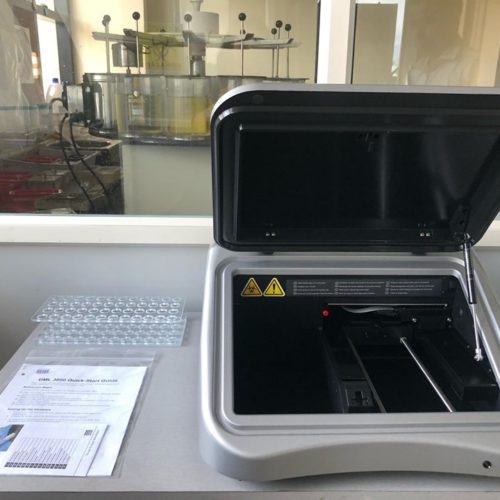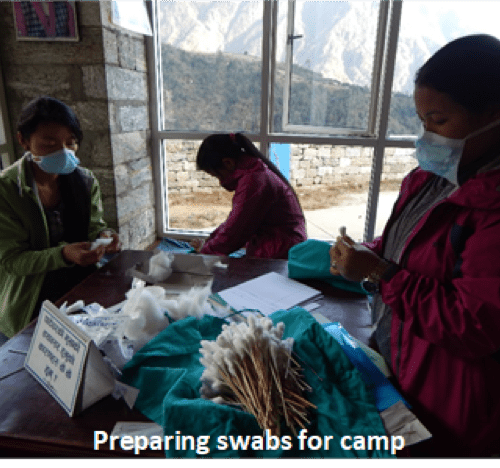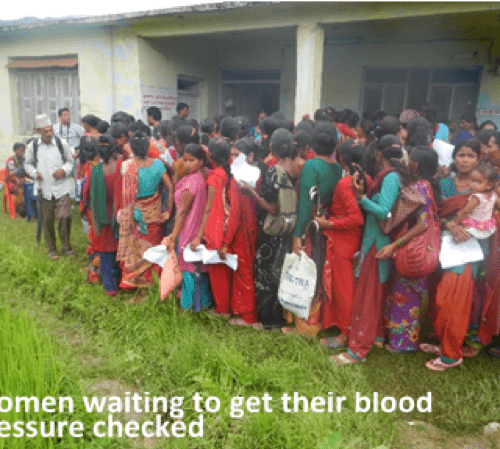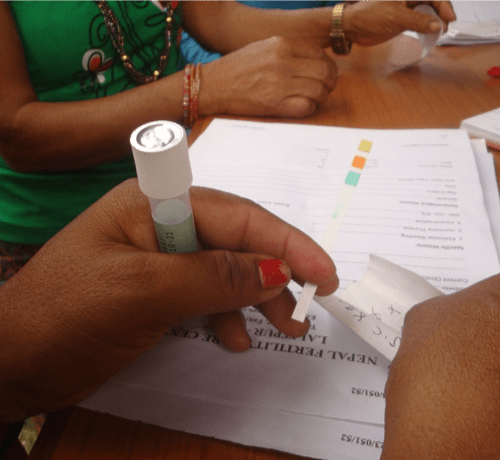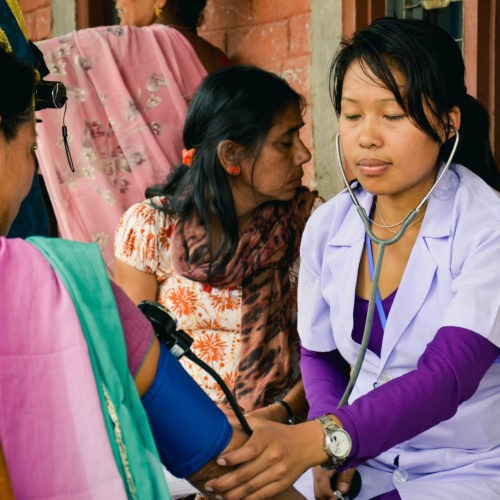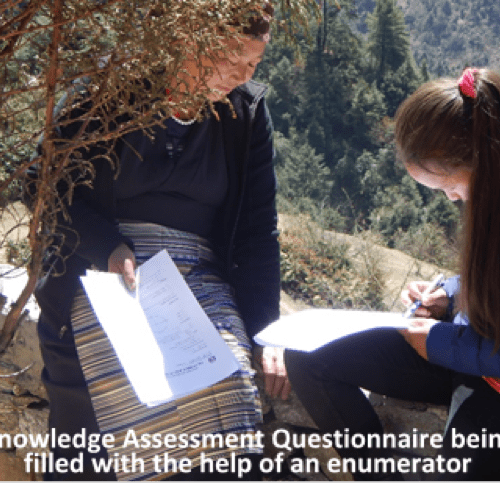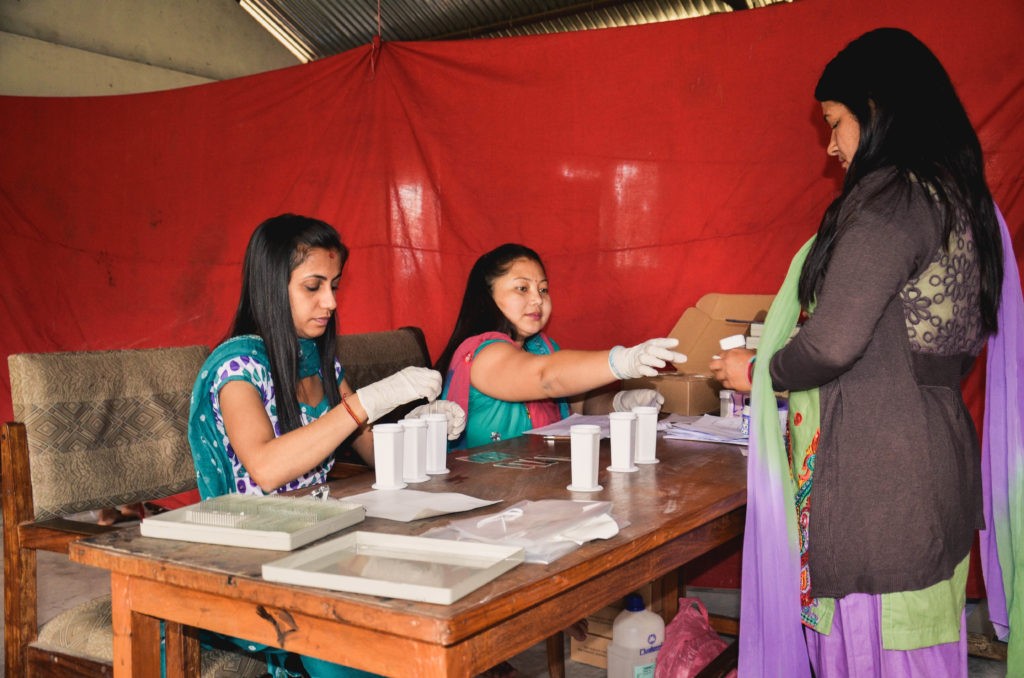
HPV and Cervical Cancer
NFCC, in conjunction with the University of Alabama at Birmingham (PI: Dr. Sadeep Shrestha), is one of the first organizations in Nepal to investigate the prevalence and social determinants of HPV infection and HPV risk behavior in Nepali women in different geographic regions.
The World Health Organization (WHO) Information Centre on HPV and Cervical Cancer state the incidence of cervical cancer in Nepal is 24.2 per 100,000, making Nepal a country with one of the highest rates of cervical cancer in the world. Although Nepal currently suffers from a heavy burden of cervical cancer, there is no official WHO estimates of the distribution of HPV in Nepal. Previous studies estimate the prevalence of high-risk HPV types in other South Asian countries to be as high as 14% in the general adult population. However, data on high-risk HPV types are not yet available for the general population of Nepal and there is no national cancer registry. In an effort to learn more about the Nepali epidemic of HPV, Nepal Fertility Care Center in collaboration with investigators at the School of Public Health University of Alabama at Birmingham (UAB) is currently investigating the prevalence of HPV in different regions and populations in Nepal. The information gained through these data will help clinicians to better understand the unique risk factors underlying HPV infection in Nepali women, which in turn, will help facilitate the understanding of how HPV is disseminated throughout Nepal’s 29 million citizens.
The ongoing NFCC/UAB collaborative effort has established a foundation for:
- education regarding HPV and cervical cancer;
- feasibility of screening and evidence of HPV prevalence in Nepal;
- networking between social workers, academics, physicians, hospitals and the Government of Nepal; and
- complementing and supplementing the Ministry of Health in the National Cervical Cancer Screening and Prevention Program.
NFCC/UAB has conducted the following pilot projects in collaboration with national and international organizations and the Family Health Division under the auspice of the Ministry of Health of Nepal.
Project I – Khokana, Lalitpur district, Central Development Region
Project II – Saphebagar, Accham district, Far-West Development Region
Project III – Damak, Jhapa district, Far-East Development Region
Project IV – Lukla, Mt Everest Base camp
NFCC works closely with relevant Government counterparts to complement and supplement the Government of Nepal National Cervical Cancer Screening and Prevention Program to ensure every Nepali woman between the age of 30-60 years has access to cervical cancer screening and thereafter, if required appropriate care and treatment.
The Ministry of Health and Population under the Government of Nepal is the focal agency where our work on cervical cancer and HPV is concentrated.
Within the Ministry of Health and Population, we work with the following divisions/departments directly or indirectly to further the work we do on cervical cancer and HPV.
NFCC has been working actively in HPV and cervical cancer since 2014. Since then NFCC has conducted many cervical cancer screening camps across Nepal. Due to the unavailability of the facility in the current context HPV testing has been compromised. However as mandated by the government of Nepal, Visual Inspection with acetic acid(VIA) as the primary method of cervical cancer screening to reach the maximum number of women, NFCC has been conducting the VIA camps in different settings.
The purposes of conducting camps are:
- To screen women of age group 30 to 60
- To make the appropriate referral center
- To conduct the research to build the evidence-based study
HPV TESTING MACHINE INSTALLATION
NFCC in collaboration with the University of Alabama (UAB), Human Papillomavirus (HPV) testing machine has…
KHOKANA, LALITPUR
Khokana is a small village development committee on the outskirts of Kathmandu valley and located…
ACCHAM
Achham is a remote district located in Province 7 of in Far West Nepal. The…
JHAPA
Jhapa district is located in Province 1 of eastern Nepal with the total area of…
SOLUKHUMBU
Solukhumbu is the gateway to to Mount Everest, the highest mountain in the world. Solukhumbu…
OTHERS
Regular screening camps are conducted in collaboration with local organizations Marwari Community In 2015,…
